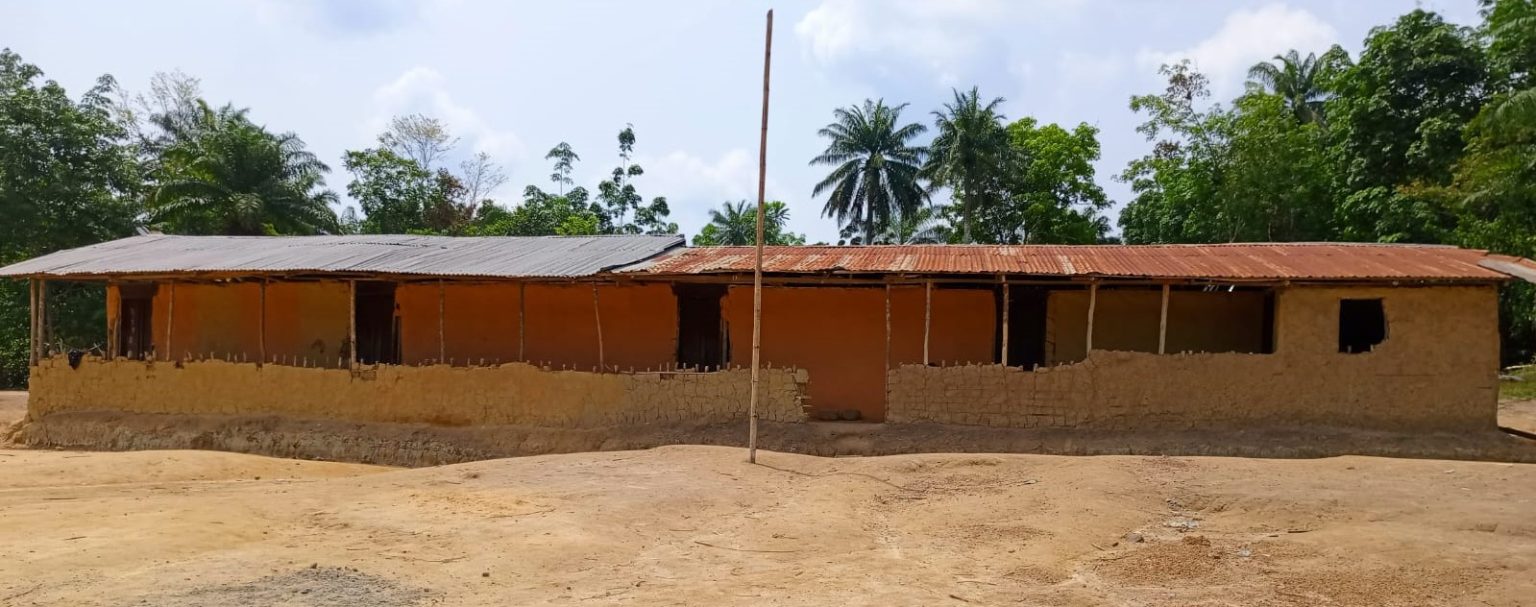The deplorable state of education in Kamara-Ta, Sanoyea District 7, Bong County, Liberia, has reached a crisis point, highlighting the urgent need for government intervention and comprehensive educational reform. The only public elementary school in the district is struggling to function, lacking basic resources and adequate staffing, thereby depriving children of their fundamental right to a quality education. The situation underscores a broader systemic issue within Liberia’s education system, demanding immediate attention to prevent further deterioration and ensure a brighter future for the nation’s youth. President Boakai’s call for stricter oversight and regulation of universities, while important for higher education, must be complemented by a parallel focus on the foundational levels of learning, starting with primary schools like the one in Kamara-Ta.
The physical conditions of the Kamara-Ta elementary school are appalling. Students are forced to sit on the bare floor or on mats due to a severe shortage of desks and chairs. Classrooms are overcrowded, hindering effective teaching and learning. The lack of essential learning materials, such as textbooks, notebooks, and pencils, further exacerbates the situation. This dire learning environment not only impacts the students’ academic progress but also their physical and emotional well-being. The discomfort and lack of resources create a distracting and demotivating atmosphere, undermining the children’s ability to focus and learn effectively. This situation has also contributed to a decline in enrollment as parents become increasingly reluctant to send their children to a school lacking even the most basic necessities.
The shortage of qualified teachers is another significant challenge facing the Kamara-Ta elementary school. With only two teachers for over 100 students, individual attention is severely limited, and class sizes are unmanageable. This teacher-student ratio makes it nearly impossible for educators to effectively cater to the diverse learning needs of their students. The lack of teachers on the government payroll further complicates the situation, resulting in inconsistent staffing and frequent absences. Students who often walk long distances to reach the school are sometimes met with empty classrooms, further discouraging attendance and hindering their educational progress. The scarcity of qualified educators underscores the urgent need for government investment in teacher training and recruitment, particularly in underserved rural areas.
The consequences of this educational neglect are far-reaching. Children in Kamara-Ta are being denied the opportunity to reach their full potential, perpetuating a cycle of poverty and underdevelopment. The lack of quality education limits their future prospects and hinders their ability to contribute meaningfully to their communities and the nation as a whole. The situation in Kamara-Ta is a stark reminder that education is not merely a privilege but a fundamental right that must be guaranteed to all children. The government has a responsibility to ensure that every child, regardless of their location or background, has access to a quality education that empowers them to succeed.
The local community, including the youth president, Aloysious Joe, parents, and elders, has voiced their concerns and called for immediate action. Their pleas for intervention from the Ministry of Education and support from non-governmental organizations and other stakeholders highlight the collective responsibility to address this crisis. The community recognizes the vital role education plays in the development of their children and the future of their town. Their advocacy underscores the urgent need for a collaborative effort involving government agencies, civil society organizations, and the international community to ensure that the children of Kamara-Ta receive the education they deserve.
Addressing the crisis in Kamara-Ta requires a multi-pronged approach. First and foremost, the Ministry of Education must prioritize the allocation of resources to improve the school’s infrastructure and provide essential learning materials. This includes providing desks, chairs, textbooks, notebooks, and other necessary supplies. Secondly, there is a pressing need to recruit and train qualified teachers and ensure they are adequately compensated and supported. Thirdly, community engagement and parental involvement are crucial for creating a supportive learning environment and promoting school attendance. Finally, long-term sustainable solutions require increased investment in education, improved teacher training programs, and effective monitoring and evaluation mechanisms to ensure accountability and track progress. The situation in Kamara-Ta serves as a wake-up call, urging immediate and sustained action to address the educational disparities within Liberia and ensure that all children have the opportunity to thrive.














